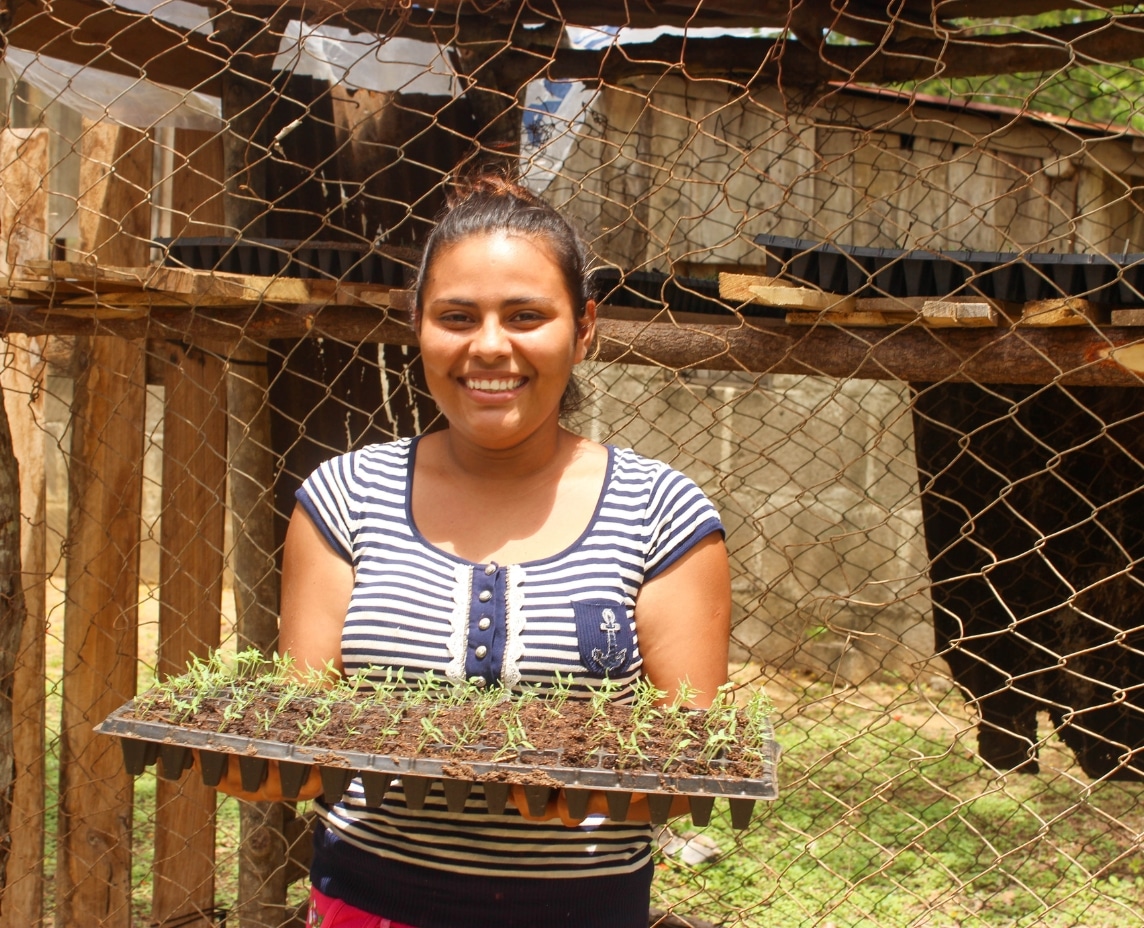The Project aims to contribute to the reduction of poverty and hunger, promoting the economic autonomy of women, equal rights and the fight against hunger and malnutrition, reducing the negative impact produced by COVID-19 in 7 vulnerable communities of the peri-urban and rural environment of Diriamba, Nicaragua, one of the poorest areas of the country, in relation to:
- Drastic increase in unemployment, more than 80%, due to the lack of production and marketing, which has caused serious deficiencies in the coverage of the basic needs of households;
- Increase in situations of gender violence during quarantine (35 femicides in the country in the first half of 2020 alone).
- Reduction of spaces for socialization between women, such as safe spaces and spaces for personal and social development, which prevents them from sharing experiences and emotions among them.
To respond to these problems, the project will promote the sustainability of the communities’ agricultural production systems with the aim of increasing and diversifying production for the self-sufficiency of domestic units and for the sale of surpluses.
To do this, work will be done on the so-called “Backyard Economy”, rational exploitation of the land spaces around the houses, developing small family farming initiatives. These orchards allow production to be diversified through traditional and non-traditional farming techniques that are respectful of the environment.
The diversification of crops, staggered planting and associated crops will increase the volume and varieties of production, expanding fruit trees, vegetables, roots and tubers, musaceae and basic grains, among others. Creole seed banks guarantee the sustainability of orchards.
Consequently, it is expected:
- Improve women’s access to agricultural means of production, with active control of resources.
- Generate surplus agricultural production that will allow economic income through marketing;
- Reduce the levels of malnutrition in the communities, which are currently very high, especially in children.
Likewise, the project plans to develop other lines of action linked to the empowerment and personal and social autonomy of women in the public and private spheres. Within the framework of this work, their capacities will be strengthened through training in women’s rights, such as the rights of political participation, and on the routes of access to justice for the prevention of violence.





